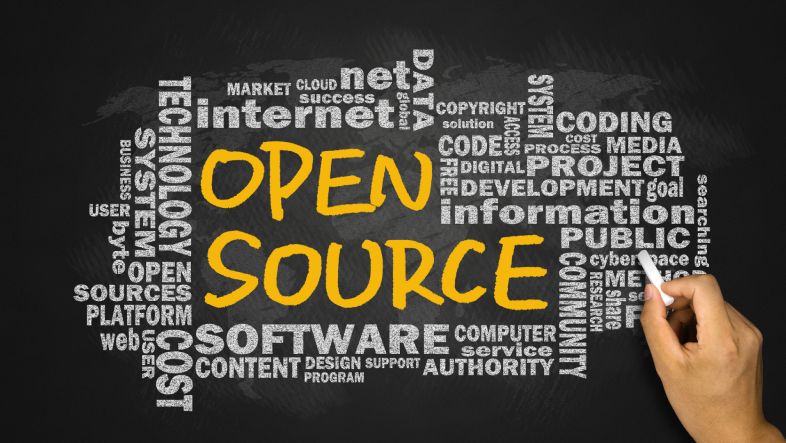· ecurrencyhodler and bitkarrot · 4 min read
Best Practices for FOSS Contributors and Maintainers

Best Practices for FOSS Contributors and Maintainers: Fostering a Collaborative Ecosystem
Free and Open Source Software (FOSS) thrives on collaboration, and both contributors and maintainers play crucial roles in sustaining these projects. To ensure a vibrant and ever-growing FOSS ecosystem, it’s essential for contributors and maintainers alike to follow best practices that enhance communication, foster a positive environment, and promote continuous learning.
Also, if you are new to bounty hunting in FOSS, this post is for you. For advice from the experienced and wise, skip to the next section and check out the videos.
For FOSS Contributors
Understand the Project
When first attempting to contribute to a team, take the time to listen, ask questions, and understand the context of the project. Align your contributions with the project’s goals and values to ensure they are well-received by the community.
View Every Interaction as a Learning Experience
Approach each interaction within the community as an opportunity to learn. Concentrate on contributing value to the project rather than extracting value for yourself.
Identify Pain Points
Focus on addressing significant pain points within the project. Tackling substantial challenges demonstrates your commitment and brings valuable improvements to the software.
Follow Through on Tasks
When you decide to take on a task within a FOSS project, commit to it. Completing assigned tasks not only contributes to the project’s success but also builds trust within the community.
Treat Contributions Like an Audition
Consider each contribution as an audition for a leading Broadway role. Put your best self forward, exceeding your normal standards, as the FOSS community can be seen as a stage where your talents are showcased.
Demonstrate Extra Credit
Go beyond the minimum requirements. Show that you can think beyond the scope of the original issue and provide valuable insights. This signals to the community that you are a high-value contributor.
Have a Growth Mindset to FOSS Bounties
There is a growing trend in FOSS projects to offer bounties to work on issues. Do not fixate on the size of the task or the amount offered in the bounties; instead, prioritize the learning opportunities each contribution offers. Sometimes projects or tasks may not work out, and that’s okay—every experience is a stepping stone for improvement.
Prioritize Communication
Effective communication is key in any collaborative effort. Keep contributors and maintainers in the loop regarding your progress. Over-communicating is better than leaving others uninformed, and it helps create a transparent and collaborative environment.
Advice from the Experienced and Wise
If you are a new developer, why should you join an existing FOSS project instead of building your own project? From the guy (Matteo Collina) who has 17 Billion NPM downloads
“You don’t need to be extremely good to contribute to open source projects, but if you do, more importantly, people will review your code which will make you way way better…. Your skills will skyrocket. “ - Matteo Collina
“FOSS is essentially like free work experience,… It’s not really something you can do on your own” - Lane Wagner, Backend Banter
For FOSS Project Maintainers
Clearly Define Requirements
To avoid miscommunication, provide clear requirements and acceptance criteria for tasks. Clarity ensures that contributors understand the expectations and can deliver quality work.
Encourage and Celebrate Work
Acknowledge and celebrate the contributions of contributors. Publicly recognize their efforts, whether through social media shoutouts or other forms of acknowledgment, fostering a positive community atmosphere.
Provide Constructive Feedback
Offer constructive feedback to new contributors. Encourage them to ask questions early and often, creating an environment where learning and improvement are valued.
Set Realistic Timeframes
Give contributors adequate time to close issues and update pull requests. However, strike a balance—don’t let issues linger for too long without follow-up. Be proactive and address concerns promptly.
Be Aware of Trolls
In any online community, trolls can emerge. Be vigilant and handle potentially contentious situations before they escalate. Similar to an internet moderator, maintainers should be adept at diffusing tensions and promoting a respectful discourse.
Effective collaboration within FOSS projects relies on the commitment and synergy between contributors and maintainers. By adhering to these best practices, both groups can create a thriving ecosystem that encourages continuous learning, celebrates achievements, and ultimately results in high-quality open source software. Remember, FOSS is a collective effort where everyone’s contribution matters.
Some more useful advice
- Open Source is Not about you - From the Clojure developers and Primeagen
- 5 Signs of an Inexperienced Self-Taught Developer (and how to fix)
- Stop solving problems that don’t exist - Lessons from a Legend that all new developers should learn from - From the Linus Torvalds.